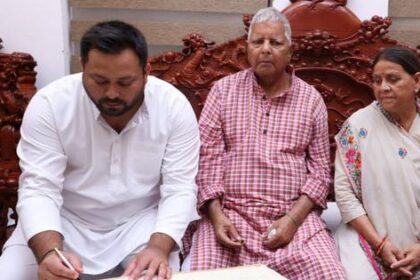Exploring themes of midlife crisis and emotional stagnation in Ben Markovits’s latest novel.
Ben Markovits’s novel, The Rest of Our Lives, revolves around Tom Layward, a middle-aged man embarking on a road trip following the revelation of his wife’s infidelity. This admission, stemming from an affair that lasted only three months, sets the stage for Tom’s introspection. He recounts the incident with a sense of resignation, reflecting on his wife Amy’s guilt and their marriage, which he characterizes as merely “C minus.” The narrative paints a picture of a man who feels defeated, grappling with the emotional fallout of his wife’s betrayal.
Tom’s journey is not just physical; it is also an exploration of his stagnant life and the dynamics of his marriage. After years of raising their children, he finally confronts his feelings about the affair, yet his decision to go on a road trip appears futile in the grand scheme of their relationship. The initial chapters promise depth, reminiscent of Miranda July’s provocative storytelling, but ultimately, Markovits’s narrative falters. Tom’s plight elicits little sympathy, as he seems to embrace his misery rather than seek a path forward.
While the novel hints at Tom’s ambitions, particularly his desire to write about his experiences on the basketball courts across the country, it fails to deliver engaging content. Despite his intentions, Tom does not engage in meaningful conversations during his travels, leaving the reader wanting more. His literary aspirations seem misplaced, as the dialogue he encounters lacks depth and insight, reducing the potential for exploring themes of male loneliness and the complexities of white masculinity.
As Tom interacts with friends from his past, the encounters are shallow and often revolve around trivial complaints about life, rather than providing a rich exploration of their dynamics. Although he grapples with his identity and perceived social standing, his political views remain ambiguous, leading to confusion about his character. The friends he reconnects with seem to represent a narrow perspective, and Tom’s reluctance to challenge their views raises questions about his convictions.
A recurring theme in the narrative is Tom’s struggle with health issues, specifically a peculiar ailment that causes his face to swell. This subplot introduces a sense of urgency, yet it feels disconnected from the overall narrative, as if it was an afterthought. The emotional weight of this condition comes too late in the story, contributing to a disjointed reading experience.
Throughout the novel, the specter of middle age looms large, as Tom attributes both his health and emotional struggles to this stage of life. His reflections on aging and inadequacies are poignant, but they also highlight the confusion surrounding his character. By the time Tom’s age is revealed as 55, it feels incongruous with the weight of his complaints about aging. In essence, The Rest of Our Lives offers a glimpse into the complexities of a man wrestling with his past, yet it ultimately struggles to provide a compelling narrative or a satisfying resolution.








